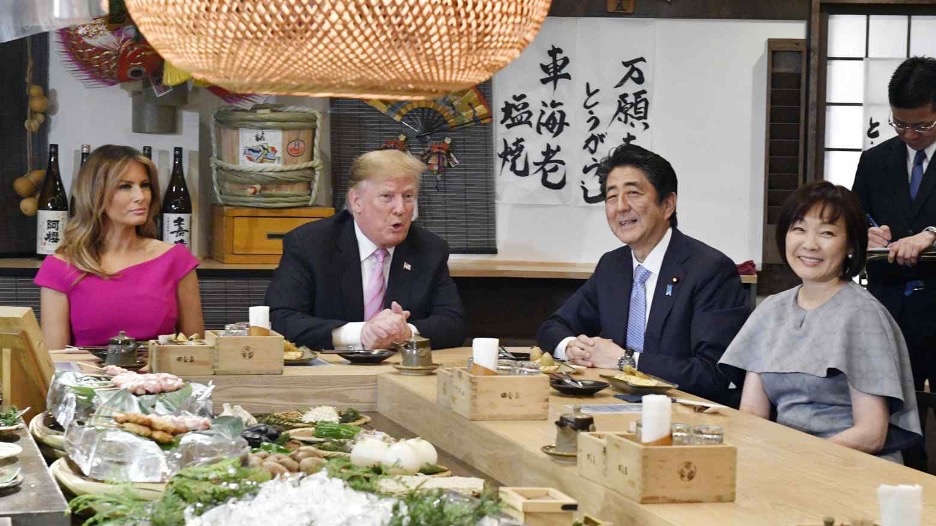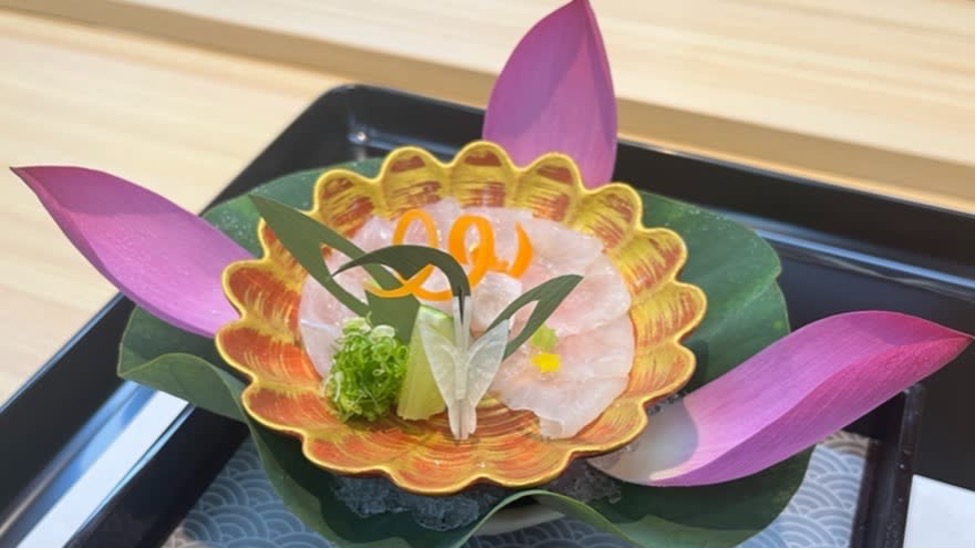PMs from Abe to Ishiba have tailored state dinners to individual foreign leaders

As Japan faces a security environment that Prime Minister Shigeru Ishiba says is the most complex since the end of World War II, the country has been relying on a diplomatic tactic it has long favored: the quickest way to a leader’s heart is through their stomach.
When former Prime Minister Shinzo Abe was trying to build a relationship of trust with U.S. President Donald Trump during the latter’s first term, he used food in addition to golf.
During Trump and first lady Melania Trump’s visit to Japan in 2019 as state guests, Abe and his wife hosted them at a restaurant in Tokyo’s upscale Roppongi district specializing in robatayaki — Japanese fireside cooking, with open kitchens and simple preparations.
Considering Trump’s preference for fast food, Abe decided that a restaurant more casual than kaiseki, but which still had a distinctly Japanese atmosphere, would be better. Trump feasted on baked potatoes with butter and wagyu steak.
When it comes to diplomacy, hard power, like military and economic strength, alone cannot win over international public opinion. Soft power that improves a country’s image and increases its fan base is becoming increasingly important.
“Diplomatic meals are important opportunities to exchange information and opinions with other countries,” said former Ambassador to Canada Kenjiro Monji. “Inviting someone to a meal at the ambassador’s residence, or at home, instantly increases the sense of intimacy with the other person.”

Please see full here: https://asia.nikkei.com/Politics/International-relations/Sushi-diplomacy-Japan-s-foreign-relations-trump-card-is-its-food